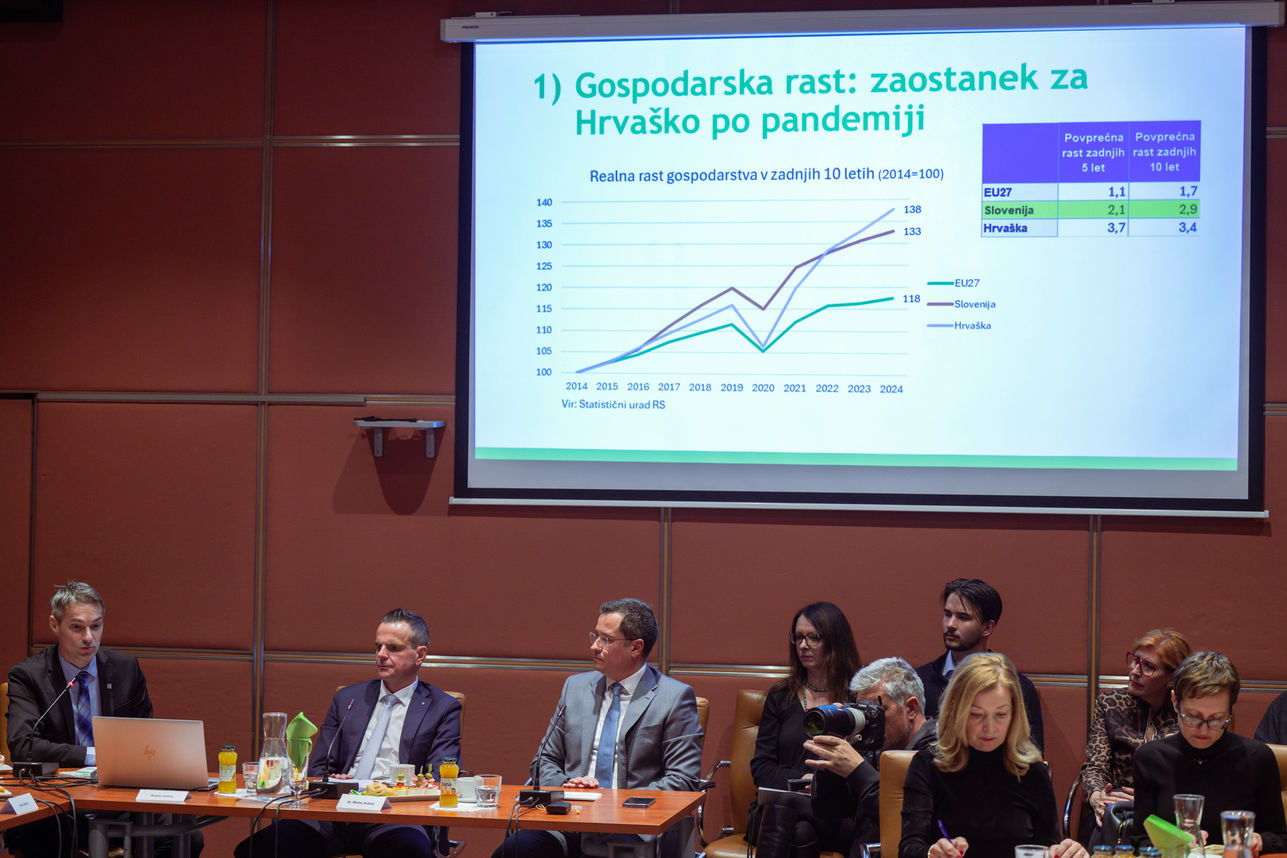Slovenia’s Competitiveness Needs to Be Strengthened through Deregulation, Reform of the Judicial System, and Investment in Research and Development

Ljubljana, 15 April 2025 - Especially at a time of geopolitical instability and trade protectionism, it is crucial to improve the competitiveness of the Slovenian economy, underline the Presidents of the Economic Circle. They see opportunities in the implementation of key structural reforms. By the end of their mandate, they call on the government to relieve the burden on wages and to make the tax system more efficient, including more appropriate solutions for the provision of long-term care and cross-border provision of services. They call for the removal of bureaucratic barriers and for increased investment in research and development, artificial intelligence, digitalisation, and the green transition. They advocate for the development of employee co-ownership and a more flexible labour market.
Business representatives point to the need for structural reforms to improve Slovenia's competitiveness, especially in times of unstable geopolitical and economic conditions. They highlight the opportunity for Slovenia to take decisive steps to strengthen its competitiveness and create a stable, inclusive and business-friendly environment. Social dialogue has already shown in the negotiations on the pension reform that balanced solutions can be achieved, and it is important that this approach is extended to other key areas such as the regulation of long-term care and the provision of cross-border services. Business representatives advocate for wage relief, a more efficient tax system, and a more flexible labour market. They point to the need for the state to reduce unnecessary administrative burdens and ensure more efficient delivery of public services through better organisation of work and digitisation of procedures. They were clear that a sound energy policy offers opportunities for long-term competitive prices for business and residential consumers and greater energy independence. They also stressed the importance of enhanced government support for investment in digitalisation, research, development and innovation, artificial intelligence, and the green transition. They also advocate for the development of employee co-ownership and support for agriculture. Slovenia must become more attractive to domestic and foreign investors. They also stress the need for changes in the judicial system to ensure a fast, predictable, transparent and fair trial. Cooperation between the state, the economy, the education system, the research and development sector, and society is key to creating a sustainable and development-oriented business environment in the long term.
Bojan Ivanc, Chief Economist at the Chamber of Commerce and Industry of Slovenia (GZS), highlighted Slovenia's competitiveness from an economic perspective. In his introduction, he highlighted the difference in the speed of economic growth in Croatia, which has been two-thirds higher than in Slovenia over the past five years, which has also been influenced to some extent by the increase in the tax burden in Slovenia. Among OECD countries, Slovenia ranks 7th in terms of the tax wedge on average earnings, while Croatia is only 14th. The labour market in Slovenia is showing early signs of weakness, driven by a fall in new orders in manufacturing, which accounts for a good fifth of all jobs. Low investment in machinery and equipment and intellectual property products also reflects a weak outlook for productivity growth. The share of companies planning to expand their business in Slovenia is the lowest since 2010, which means that the private sector needs new incentives. Ivanc pointed out that the Slovenian economy is more industrialised than the Croatian one, which presents a significant challenge given the rise in energy prices. "From the second half of 2024, electricity and natural gas prices for non-household consumers are rising again, and are still one time higher than before the energy crisis. At the same time, Slovenia's internal competitiveness to produce products for the EU-27 markets is also declining, as in the first half of 2024 (latest data), the price for larger business consumers was a quarter higher than the EU-27 average. Before the energy crisis, the opposite was true, with electricity prices 20-25% lower than the EU-27 average. As a result, our energy-intensive business will find it harder to secure new orders because it has higher production costs," he explained.
* * *
"Slovenia is one of the safest countries in the world with a highly skilled workforce, but its unattractive economic environment discourages foreign investors. High payroll taxation, lengthy procedures for work permits, and unpredictable legislation make it even more difficult to do business. Public tenders remain open only in principle, as the interconnectedness of local procurers and suppliers limits access for foreign companies," said Luka Vesnaver, President of the British-Slovenian Chamber of Commerce, adding that "effective reforms are urgently needed to improve the business environment and facilitate the inflow of foreign capital."


